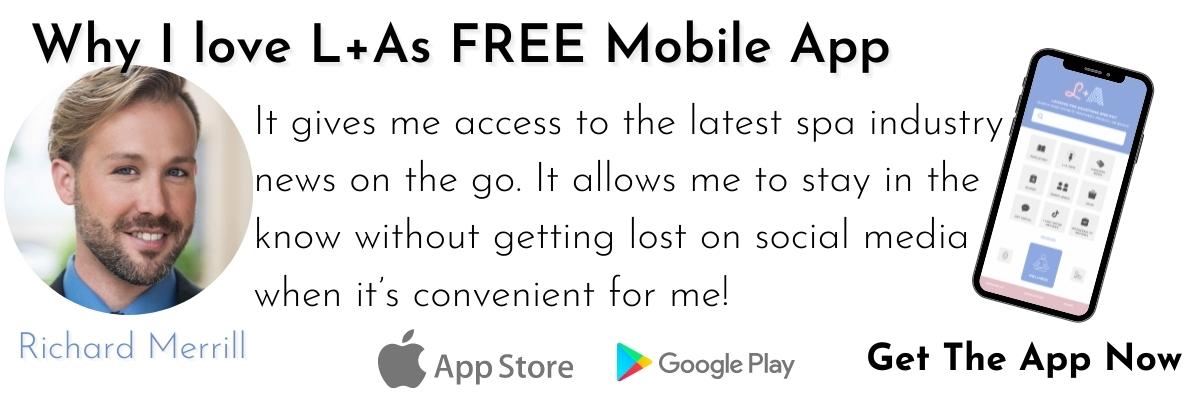Summertime is around the corner, so our clients are preparing to spend extended periods outdoors. As licensed skincare therapists, our role in the clients’ lives is to provide education supporting their lifestyle while addressing their primary skin concerns. One of the most critical and controversial topics discussed among skin care experts is the use of sunscreens.
Whether you are an avid user of sunscreen or advocate for the safe use of this product during high sun exposure, only the fact is that sunscreen is a fundamental product for every skincare business and its clients.
On September 27, 2021, the Food and Drug Administration (FDA) posted a proposed order describing updated proposed sunscreens requirements. You can read that notice here: Given the recognized public health benefits of proper sunscreen use, clients should continue to use sunscreen with other sun-protective measures as this vital effort moves forward.

Contribution by Richard Merrill
Richard Merrill has contributed many articles to Lipgloss + Aftershave. Richard is a results-driven Spa Business Consultant who specializes in mentoring and guiding spa businesses across the U.S. on branding, marketing, sales, strategic planning, and management systems.
As licensed professionals, we can use this information to increase consumer awareness while also educating our audience to make informed buying decisions. For example, many consumers are unaware that sunscreens are classified as Cosmetics containing Over-The-Counter Drugs providing regulatory oversight by the FDA. This means that there are compliant practices to be met during the manufacturing, labeling, and usage guidelines for products deemed a sunscreen.
How do your clients use this product, and what other protective measures do they take to make a difference in how well they can protect themself and their families from sunburn, skin cancer, early skin aging, and other risks of overexposure to the sun.
Spa Goer’s Guide: 20 Reasons To Wear SPF Daily
4 Essential Sun Safety Tips
It is crucial to share educational resources that support your sales efforts to keep your audience engaged when marketing your business. Before we jump into product-focused marketing, let us discuss a few essential sun safety tips that can help start a dialog with your audience:
- Limit time in the sun, especially between 10 a.m. and 2 p.m., when the sun’s rays are most intense.
- Wear clothing to cover skin exposed to the sun, such as long-sleeved shirts, pants, sunglasses, and broad-brimmed hats.
- Use broad-spectrum sunscreens with SPF values of 15 or higher regularly and as directed.
- Reapply sunscreen at least every two hours and more often if you’re sweating or jumping in and out of the water.
5 Tips/Questions You Can Use To Start The SPF Conversation
Sharing these tips can be a great source of education for your audience, resulting in questions about your favorite product suggestions. However, before providing an answer that ends the conversation, we should consider using a question to answer a question that opens the dialog further. Here are five questions you can use to keep your audience engaged in a discussion live in-person and online:
Q: Did you know a recent FDA study showed that some sunscreen ingredients are absorbed into the body?
A: Offer alternatives for those concerned about this: wear sunglasses, limit the time you spend in the sun, wear protective clothing and hats, and find shade.
PRO-TIP: Connect with wholesalers who offer these items to increase your retail selection online and in-store.
Q: Sunscreen labels should have an expiration date per manufacturing requirements. If there is no expiration date indicated, what should you do?
A: Assume it is stable to use if purchased within the last three years and stored in a cool, dry place. FDA regulations require all sunscreens and other nonprescription drugs to have an expiration date unless stability testing conducted by the manufacturer has shown that the product will remain stable for at least three years.
PRO-TIP: Ask your manufacturer about the stability testing done on their products. This can provide excellent resources of data for marketing your retailed sunscreen selections.
Q: Are you aware of what factors will ensure you choose the best Sun Protection Factor (SPF) for your Broad Spectrum Sunscreen?
A: There is a popular misconception that SPF relates to the time of solar exposure. SPF is not directly related to the time of solar exposure but the amount of solar exposure. In addition to solar intensity, several other factors influence the amount of solar energy that a consumer is exposed to skin type, amount of sunscreen applied, and reapplication frequency.
PRO-TIP: This is an excellent opportunity to suggest a skincare consultation and analysis. Using your skin consultation and analysis, you can further develop a relationship with your client while providing customized solutions to their needs based on their answers.
Q: Do you know what a sunscreen label of SPF (Sun Protection Factor) 15 means?
A: SPF measures how much solar energy (UV radiation) is required to produce sunburn on protected skin (i.e., skin that sunscreen has been applied) relative to the amount of solar energy required to produce sunburn on unprotected skin.
Q: Is your current sunscreen broad spectrum?
A: Not all sunscreens are broad-spectrum, so it is vital to look for it on the label. Broad-spectrum sunscreen protects from the sun’s ultraviolet (UV) radiation. You need to protect yourself from two types of UV radiation – UVA and UVB. Broad-spectrum protects against both by providing a chemical barrier that absorbs (chemical sunscreen) or reflects (physical sunscreen) UV radiation before it can damage the skin.
Sunscreens that are not broad spectrum or that lack an SPF of at least 15 must carry the warning:
“Skin Cancer/Skin Aging Alert: Spending time in the sun increases your risk of skin cancer and early skin aging. This product has been shown only to help prevent sunburn, not skin cancer or early skin aging.”
3 Tips To Increasing Sales of Sun Protection
Now that we have our clients engaged in educational dialog, how do we transition to increasing sales of Sun Protection in our salon and spa?
- Use ingredient education: Every drug has active and inactive ingredients. In the case of sunscreen, active ingredients are the ones that protect your skin from the sun’s harmful UV rays. Inactive ingredients are all other ingredients that are not active ingredients, such as water or oil, that may be used in formulating sunscreens or providing other skin conditioning benefits.
- Take a stance: As licensed professionals, we will use research and knowledge to make an informed decision about the products we offer our clients. Sunscreen has three distinct camps of ideology: chemical, physical, and hybrid. As a professional, you will choose one of these ideologies to support your business or perhaps offer a solution in all three. What is essential to remember is that your clients will choose you because they align with your position. Do not choose because someone suggested that choice to you; decide because it aligns with your beliefs and personal daily practices.
- Multicultural Skin: Physical sunscreen ingredients will cast a film mask on the skin that can be evident in photos and videos. When choosing the products in your practice, be mindful of how this cast will impact the client and lifestyle. Use this information to make inventory decisions that support your ideal client audience and use that decision-making process to create content that educates your audience about the why more than the what.
Need more data to help you create your marketing content? Check out this detailed list of reference data from the FDA that can be used to develop reels, static images, and other forms of marketing collateral to help you service your clients and protect them with sunscreen around the year: https://www.fda.gov/consumers/consumer-updates/tips-stay-safe-sun-sunscreen-sunglasses

